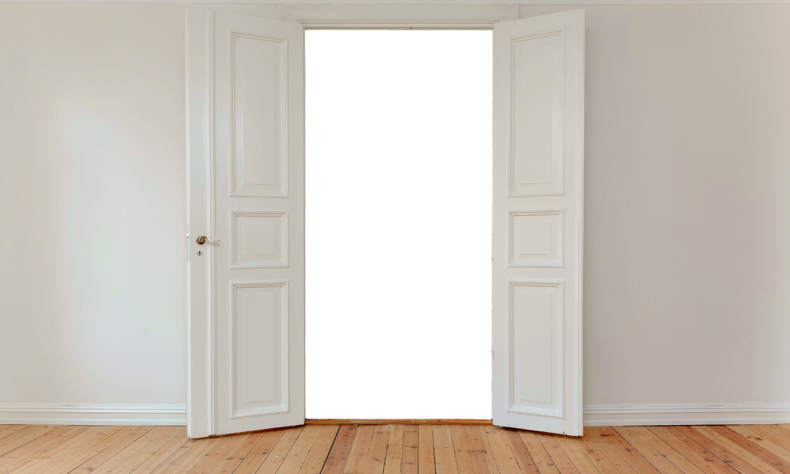
About Acoustic Doors
The purpose of these doors is to keep noise and vibrations from bouncing throughout the room. The application of insulation engineering within the door’s body helps to insulate sound within a room. Acoustic doors serve as a sound barrier, preventing noise from reverberating. Theoretically, the bigger the mass and more robust the door, the less sound it transmits. This can be helped by using insulating foam or dense cores sandwiched between them. Hinges, frames, and ironmongery are included in acoustic doors and door sets. Acoustic doors come in a variety of veneer and painted finishes, and they can be customized to fit your needs.
What techniques are used to create them?
They have a solid core that acts as a sound barrier and offers insulation. Insulating foam or a reinforced core is often used in the core of these doors. They also employ the usage of an acoustic seal. They act in a similar way to an intumescent seal in that they produce an airtight seal around the door that prevents sound transmission. The acoustic doors decibel or acoustic rating is also mentioned. Not to mention the fact that acoustic doors can be made fireproof! They are multifunctional, and by offering fire and sound protection, they can save and improve lives.
Acoustic Door main components
Acoustic Door main components are:
- The door cores
- A door leaf’s
- The doorway frames
- The hinges
- Close the door.
- Soundproofing
Acoustic Doors and Their Uses
They’re beneficial in a variety of situations, especially when secrecy or a lot of noise is required. Consider the following scenario:
- Studio for music or broadcasting
- Medical establishments (e.g., doctor’s offices or hospitals)
- Universities and colleges
- Legal and regulatory structures (courts or police stations)
- Corporations
- Apartment buildings
- Laboratories, factories, and building sites are examples of workplaces.
When noise pollution becomes a safety problem, a threat to one’s well-being, or a breach of confidentially, acoustic doors should be considered.
Soundproof Doors
Soundproofing a door is beneficial in a variety of settings, including residences, workplaces, and everything in between. Sadly, there are far too many solutions for sound dampening rather than a true obstruction. To soundproof a door, replace it with a solid core door or add mass loaded vinyl, soundproof blankets, and panels to the existing door to make it physically robust enough to prevent noise. To prevent air leaks, use a door gasket, door sweep, or spray foam to plug the gaps.
You’ve probably considered soundproofing as a remedy if you’ve ever had your sleep disrupted by noise or your study interrupted by individuals in the next room.There are various reasons why people wish to reduce sound levels in their homes and workplaces, and soundproofing isn’t just for recording studios and properties near to highways.
Why Is It Important to Soundproof a Door?
If you’re thinking about soundproofing your door, you might be asking if it’s really worth it. After all, the walls, ceiling, and floor make up the majority of the space.Soundproofing allows you to better manage the temperature inside your home. Because air isn’t travelling as quickly through the cracks in the door, you’ll be able to adjust the temperature with a thermostat. If you want to keep your wooden music instruments in good condition, you’ll need to go through this method. Soundproof doors are excellent for security and privacy.
Specification & Benefits of Soundproof Door
Keeping Things Quiet
Some offices, from massage therapists to confidential counsellors and dentists, simply cannot function with sound leakage from the outside or from other rooms within the building.You might have varied bedtimes at home, a shift worker attempting to sleep during the day, or one family member who wants to read quietly without the sound of the television distracting them.If you enjoy listening to loud music or have set up a home theatre, you must also consider the influence of your noise on others.Normal life can continue on without upsetting others or being disturbed with good soundproofing.
The Drum-Effect
The hollow-core door is the worst offender. This style of door, which is made up of thin veneers and a honeycombed core, can actually make sounds louder by functioning as a drum. Soundproofing is not a strong suit for hollow-core doors.Hollow-core doors are standard in most modern homes, and if you can hear a conversation clearly on the other side of your door, you’re undoubtedly living with one.
The Great Divide
You can significantly improve the soundproofing of your building by replacing hollow-core doors with solid construction doors, such as solid wood or solid-core doors. If you can afford it, a solid hardwood door will significantly reduce noise. The density of the wood muffles sound and, when properly installed, creates a sound barrier.A solid-core door made of materials such as MDF and wood veneer is a less expensive alternative to expensive hardwood.
Thickness Is Beneficial
Another thing to think about is the thickness of the doors. Australian doors are typical 35mm thick, but a thicker solid door will provide additional soundproofing. A thicker door may require a custom frame, which may be installed by door professionals for a proper fit





